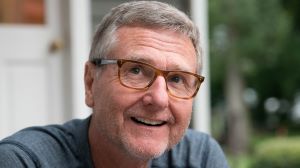Sometimes looking back helps in looking ahead.
After attending the recent historic and perhaps watershed Synod of the Christian Reformed Church my wife and I — she was a delegate — returned home to rummage through the pile of mail waiting for us after a week away.
Amid the political ads, magazines, bills, and unsolicited junk mail I found the Calvin Theological Seminary 50 Year Class Reunion booklet for the class of 1972. I was unable to attend the event with my classmates, but the Seminary was kind enough to send the document my way.
Included in the pages along with the usual collection of class pictures, updates from classmates and greetings from the Seminary was a 1971 essay from then Seminary President John Kromminga entitled “The Church and Change.”
It was a revelation. And I wished that all delegates to Synod would have had access to it and its prophetic, prescient vision.
Kromminga: “And then turning to the confession, I think it is high time that our confessional statements give more formal attention to the mission of the church. By that I do not mean just missions as traditionally conceived, although even they do not receive much attention in our present confessions. But the total ministry of the total church to all mankind; this deserves confessional attention because it is a living part of our confession of the living God.”
From here Kromminga locates this mission and ministry: “. . . this work will have to be done mainly on the local level; but with full (involvement on the) denominational level. They are not where they live, in the local community. And confession is not done mainly on the denominational level. It is done where people are busy putting their faith to work. Communities themselves, and the capacities of the church to minister to them differ from place to place. Therefore, the job has to be done where people make contact with other people in the name of the Lord . . . The local congregation is where the church is. It is a complete manifestation of the Body of Christ. It must be allowed the flexibility and freedom to work out local solutions to local problems. But it must also be given a framework of unity in which that local operation can be carried out. . . But if that guardian, watchdog activity is all that our confessions mean, their most important dimension is lost.”
It remains to be seen just what has been lost because of the recent Synod decisions, although the damage is already apparent to many. I can still see President Kromminga puffing his pipe, rubbing shoulders with seminary students, making ministry come alive. I wonder what speech he may have offered at the recent synod. And I wonder if he would have had the freedom to make it.
As a guest at Synod, I attended all the sessions when allowed. The political and polity divide was palpable from start to finish. We were ushered from the Covenant Fine Arts Center to the dining hall by campus police to “protect” us from the singing and praying and sometimes silent crowd in support of LGBTQ+ inclusion, as if they were violent, U.S. Capitol-storming protestors armed with assault weapons. Prayers for “unity” came often, some sincere.
All of this, and the decisions regarding confessional status and church discipline, from a confessional denomination whose birth was rooted in the desire for “purity.” We’re this, not that. We don’t do this. They do, so we must leave to start something new. Walls, boundaries, exclusion. All buttressed by a certain reading of confessional statements.
John Kromminga’s concern in the 1971 essay is the reality of the CRC today — confessional unity as a measure of purity and tool to divide, with local ministries handcuffed and rebuffed. Tinkering with the confessions to build a wall. The vital ministries of the local church? Be careful, don’t cross the line. Lord, help us.

